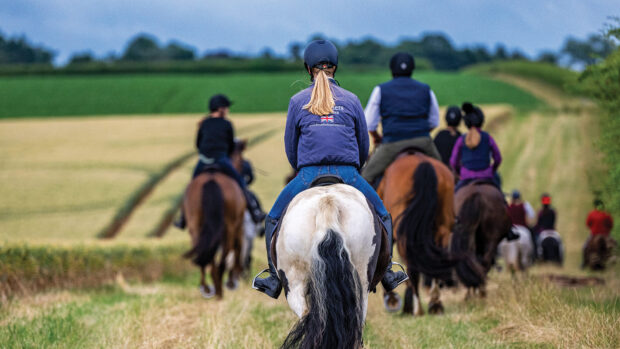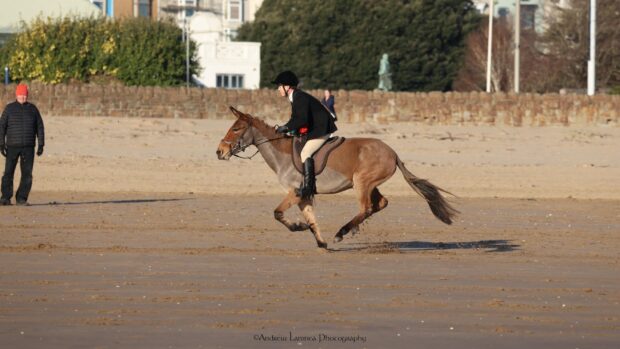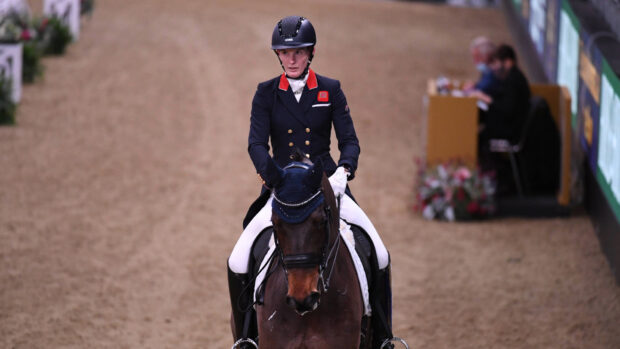Talking about menopause is vital to help those who will be directly and indirectly affected by symptoms, and to support women to continue to do the sports they love.
The message came from campaigner Diane Danzebrink, who spoke to H&H for a news investigation into the impact menopause can have on some riders.
Diane Danzebrink started Menopause Support and the #MakeMenopauseMatter campaign after her experience of going into surgical menopause – which is where menopause is brought on instantly as a result of certain operations – with no information of what that could mean.
She experienced severe symptoms that seriously affected her mental health.
“I remember saying to my husband one day, ‘if I ever feel like me again, I’m going to make damn sure I do something to change this. I don’t want anybody to ever experience what I’ve experienced’,” said Diane, a professional therapist, who started the Menopause Support website and had been counselling women one-on-one before launching #MakeMenopauseMatter out of “pure frustration”.
“I was just so devastated by the amount of dreadful emails that I was receiving on a regular basis, and I thought we need a national campaign.”
Its aims are to introduce menopause into the school curriculum (achieved in England in 2020), improve menopause education among GPs, raise awareness of it within the workplace and for all employers to have support guidelines in place.
“The media has taken a huge interest over the last few years and that’s brilliant,” she said.
“The first time I spoke publicly on television about my experience was in 2015 and it was a really lonely place at the time, because even then, lots of people didn’t want to say the word ‘menopause’ out loud. But now we’ve got celebrities and high-profile people talking about their experiences, and obviously, that all helps with conversation.”
She added that it is “absolutely vital we talk about it”.
“It’s going to affect half of the population directly. But it’s going to have an effect on the other half of the population because whether it’s your partner, your mother, your sister, your aunt, whether it’s your friend, your colleague, at some point, we’re all going to know somebody who’s going through menopause,” she said.
“It can have effects on relationships, on careers, on friendships, on things that we love to do.”
She added that she has counselled “so many women who have given up horse riding or cycling” as a result of symptoms, such as anxiety, loss of confidence and pain.
“When people have given up the thing that brings joy to their life, the thing that they’ve probably done since they were little, we really do need to get these messages out. It’s so important that they have the information before it comes along, so that they can make those informed decisions,” she said.
“For one in four women, they won’t experience any symptoms at all. They’ll barely know it’s happening.
“You might be the lucky one in four that doesn’t experience any symptoms whatsoever. But if you’re not, if you’re somebody who does experience symptoms, there are things that you can do about it.
“You don’t have to suffer in silence. You don’t have to give up the thing that you love in your life.”
You might also be interested in:

Lack of information on menopause symptoms directly affecting riders: women speak out to empower others

Subscribe to Horse & Hound magazine today – and enjoy unlimited website access all year round

Top rider urges ‘treat yourself as an athlete’ after low blood sugar may have contributed to fall *H&H Plus*

The Horse & Hound Podcast 94: Italian eventer Vittoria Panizzon | How bitting has changed | News round-up

Why prioritising sleep could boost your results (and how to get more of it)
The well-being of our equine athletes might be our number one priority, but the power of a rider’s sleep for
Horse & Hound magazine, out every Thursday, is packed with all the latest news and reports, as well as interviews, specials, nostalgia, vet and training advice. Find how you can enjoy the magazine delivered to your door every week, plus options to upgrade your subscription to access our online service that brings you breaking news and reports as well as other benefits.




